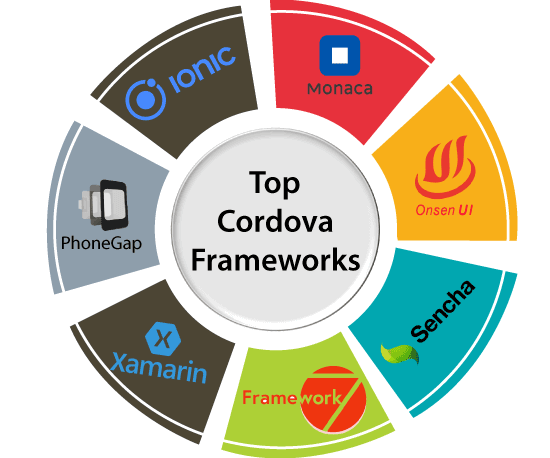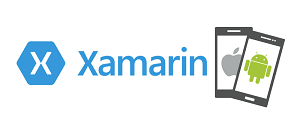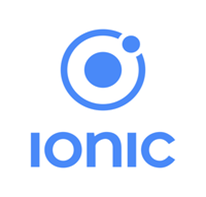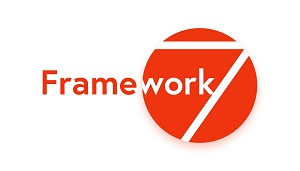Top Cordova Frameworks for Hybrid Mobile App DevelopmentNowadays, the tendency of people using desktop applications has decreased because of the increasing demand for mobile applications. Many enterprises are implementing effective development strategies to upgrade their businesses to an online environment. Due to this, Entrepreneurs prefer mobile apps to enhance their reach to targeted users. Working on hybrid mobile applications is not a time-consuming task for developers because the developer has the ease of writing code once and building a mobile app that runs on the main platform without any extra effort. The developer can also reuse the code for progressive web applications and desktop applications that mainly runs on Android and iOS. Electron is an open-source framework that adapts the code for the desktop environment. 
But we need the best frameworks to design various applications. There are several frameworks available in the market; we have defined the top frameworks that can be used for hybrid mobile applications. Why use Framework for Cordova application?Sometimes, Cordova technology is neglected because of some issues that are as follows:
So, frameworks are generally used for eliminating these issues and update the design and performance of HTML apps to native apps as possible. Native and Hybrid mobile app developmentNative Apps:There are two approaches used by the developers to create mobile applications, i.e., Native and hybrid mobile app development. This section gives the introduction of Native apps. Native App development mainly relies on tools and programming languages that are specifically designed for one platform. When we create native applications, the specific OS requirements are used by the developers to install the app on the computing device. However, we can face some significant issues while using native app development. Faced Issues:
Pros & Cons of Native mobile app development:Pros:
Cons:
Hybrid Apps:The Hybrid App development or cross-platform development is used for combining the native code with the independent code that can run the code on multiple platforms. It allows the developers to create cross-platform mobile apps. Hybrid software is coded in different languages, like HTML, CSS, and JavaScript. These languages are not native to the operating systems and the devices. So, the application is packaged into the native container and integrated into multiple platforms. It has the same look and feel as the native application. Pros & Cons of Hybrid mobile app development:Now, we will discuss the Pros & Cons of Hybrid Application: Pros:
Cons:
Now, it is the time to discuss the top Cordova frameworks for Hybrid Mobile App Development: Top Cordova Frameworks for Hybrid Mobile App Development
Xamarin
Xamarin is the best framework for building the Hybrid applications. It is a California-based software company that is owned by Microsoft. It is founded in May 2011, and it is compatible with multiple platforms. It provides efficient performance like native solutions. It mainly relies on the C# programming language with the .NET framework. The developers can use the Xamarin tools to develop native and Windows apps with native user interfaces by using C# shared codebase. You can download it from its official website: https://dotnet.microsoft.com/apps/xamarin. Its development toolset consists of the significant components that are listed below:
Pros & Cons of XamarinPros:
Cons:
PhoneGap
PhoneGap is defined as an open-source platform that is distributed by the Cordova. It allows the developer to build an application using a single codebase that is compatible with multiple platforms. It provides an ease to the developer to reuse the old web development skills supported by various languages like HTML, CSS to create the hybrid application. It is the most popular cross-platform framework that coverts our HTML, CSS, and JavaScript files into an app in minutes using the desktop and developer apps. It provides the native plugins and containers that enable the developers to access mobile resources like camera, compass, etc. After building the app, we can run it in a WebView browser that remains inside the native container on a suitable platform. You can download it from its official website: https://phonegap.com/ Pros & Cons of PhoneGapPros:
Cons:
To learn more about PhoneGap, you can click on the given link: https://www.javatpoint.com/cordova-phonegap Ionic
Ionic is defined as a free and open-source project that is licensed under MIT. It was developed by Drifty Co.in 2012that is built on top of Angular. It is used for developing hybrid apps by using different web technologies like HTML5, CSS, and SASS,etc. It consists of 120 native features like Bluetooth, Finger Print Auth, HealthKit, etc. The Command Line Interface(CLI) of Ionic is used to create, build, test, and deploy the application into multiple platforms. These applications can be distributed among different nodes by using the native stores. It is a front-end SDK that is used for building cross-platform mobile apps. It has a large community of developers where millions of apps have been developed using Ionic. Ionic also provides a platform for integrating services like push notifications and analytics. This framework consists of an icon pack named as Ionicons. It offers extra capabilities and services like maintainability, scalability that makes interactive web applications. It also provides a collection of web services that helps to enhance the speed of building, testing, debugging, and updating applications. You can download it from its official website: https://ionicframework.com/ Pros& Cons of IonicPros:
Cons:
Framework7
This framework can quickly build a prototype and develop user-friendly mobile apps that provide an interactive user experience. It is an open-source platform that consists of a simple HTML layout. It is not compatible with multiple platforms. It is an HTML framework that builds hybrid mobile apps and web apps. These apps provide Android and iOS native look and feel. It was developed by Russian studio iDangero in 2014. For creating iOS and Android apps, this framework mainly uses the iOS and Google material design. You can download it from its official website: https://framework7.io/. Some of the main features of Framework7 are listed below:
Pros & Cons of Framework7Pros:
Cons:
Onsen UI
It is another open-source framework that is licensed by Apache. It is framework-agnostic, which means you can switch between different frameworks like Angular or React to develop hybrid apps. It is anHTML5 framework that is based on the custom elements and offers a large selection of components and responsive layout support. This framework is new but gives tough competition to Ionic. It is also free for all commercial projects. It allows the developers to develop multiplatform apps without requiring additional skill set. You can download it from its official website: https://onsen.io/ The features of Onsen UI are as follows:
Pros & Cons of Onsen UI:Pros:
Cons:
Sencha
This framework is a leader of enterprise-grade application product and is used for building cross-platform apps with HTML5 and JavaScript. It is a better choice for users to provide a native look and feel across multiple platforms. It should be your first choice if you have a big organization. You can use Sencha for creating both mobile and web apps using HTML5 and JavaScript. A JavaScript framework named ExtJS is the most popular framework based on the Sencha platform. This framework builds high-performance apps with native user experience. It also uses some widgets for all the leading platforms like iOS, Android, Blackberry. You can download it from its official website: https://www.sencha.com/ With the use of Sencha Framework, we can feature a drag and drop function to build HTML5 visual application. Several templates are also available for the easy implementation of an application. Furthermore, it provides a set of themes used for various platforms like Android, Blackberry, iOS, etc. Pros and Cons of SenchaPros:
Cons:
Monaca
Monaca is a cloud-powered framework that supports both online and offline developmentof hybrid apps. It can launch your app directly to the app market. It is a framework-agnostic set of tools and consists of many ready-to-use templates that help to build and deploy the process of an app more easily. This app development tool can be used separately or can be integrated with other tools like Git, Sublime Text, etc. It was developed in Japan, but its growth was extended across several countries like the US, Mexico, Italy, China, and Venezuela. You can download it from its official website: https://monaca.io/ Pros & Cons of MonacaPros:
Cons:
Next TopicCordova Plugins
|
 For Videos Join Our Youtube Channel: Join Now
For Videos Join Our Youtube Channel: Join Now
Feedback
- Send your Feedback to [email protected]
Help Others, Please Share









